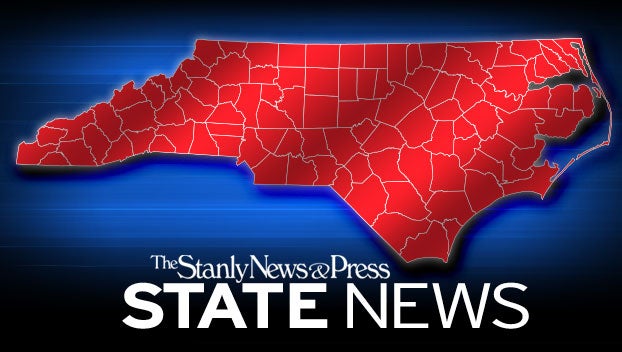STATE: Already delayed, North Carolina primary could move to June
Published 11:47 am Tuesday, January 18, 2022
|
Getting your Trinity Audio player ready...
|
By GARY D. ROBERTSON Associated Press
RALEIGH, N.C. (AP) — North Carolina Republican legislators on Monday announced plans to attempt to further delay the already postponed state primary, responding to worries about timing should the state Supreme Court strike down recent redistricting plans.
The legislature will return to work Wednesday to take up a bill that would push the May 17 primary for U.S. Senate and House seats, the General Assembly, and scores of judicial and local positions to June 7, GOP leaders said.
Any election date change likely would need some Democratic support to become law. Democratic Gov. Roy Cooper isn’t on the ballot this year but would be asked to sign any measure into law. Republicans lack veto-proof majorities in the state House and Senate.
State law had set the primary for March 8, but the Supreme Court last month delayed it to mid-May while litigation challenging the legislative and congressional maps the GOP-controlled legislature approved in November was heard. It would appear to be a massive undertaking to resolve the lawsuit — especially if lines are declared unconstitutional and legislators redraw them — and still have time to run the primary election on its current date.
A trial court last week refused to throw out the maps. Voters and advocacy groups who sued over the lines appealed that decision to the Supreme Court, which scheduled oral arguments for Feb. 2.
A State Board of Elections official has said that maps would need to be worked out by Feb. 18 to allow for the “orderly preparation” for the May 17 primary. And should districts be struck down, state law directs that the General Assembly receive at least two weeks “to remedy any defects identified” with lines before a court can impose its own substitute plan.
A quick turnaround also would give candidates only a few days to decide whether to run under altered districts, according to the office of Senate redistricting committee co-chairman Ralph Hise.
“The extremely short timeframe is not necessary and can be lengthened by moving the state’s primary elections to June 7,” a news release from Hise’s office said about Wednesday’s plans. Otherwise, it “is not fair to potential candidates and increases the likelihood of confusion and chaos.”
Friday’s argument date disclosure also caused some Republicans to openly fret whether the Supreme Court, where registered Democrats hold a 4-3 seat advantage, would attempt to rush the process. That has led to quick-moving action by GOP leaders in charge of the House and Senate.
House Speaker Tim Moore told The Associated Press in an interview Monday that he hasn’t heard personally such reasoning but still feels a three-week delay is warranted.
“It gives us all time to work on something,” Moore said in confirming the House’s return Wednesday to vote on the election legislation. “Because of the schedule … we think it wise to move back the primary for a short period of time.”
The lawsuits allege many districts are unlawful partisan gerrymanders and dilute the voting power of Black residents, stacking the deck for the GOP in future elections. Republicans disagree and call the process that create the districts fair and transparent.
The anticipated legislation for now also would eliminate primary runoffs for this year, said Pat Ryan, a spokesperson for Senate leader Phil Berger’s office. A runoff is possible under current law between the top two vote-getters in a race when the leading candidate fails to receive more than 30% of the vote.
Eliminating runoffs has the potential to dramatically alter strategies for campaigning or even entering a race. That could change key primary fights, such as the race for the Republican nomination to succeed retiring U.S. Sen. Richard Burr. The leading GOP contenders are Rep. Ted Budd, former Gov. Pat McCrory, ex-Rep. Mark Walker, and Cary combat veteran Marjorie Eastman. Democrat Cheri Beasley is the leading candidate for the Democratic nomination.
The legislature hasn’t held a voting session since late November, but the House and Senate have been convening regular pro forma sessions since late December in part to have a ready method in place to address remapping or election alterations.






